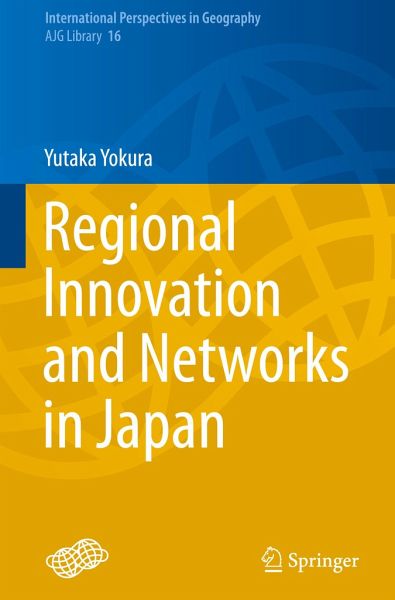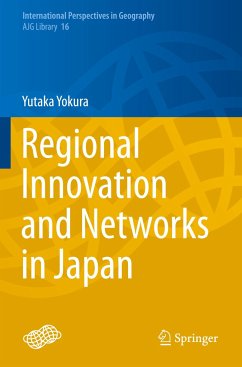
Regional Innovation and Networks in Japan
Versandkostenfrei!
Versandfertig in 6-10 Tagen
91,99 €
inkl. MwSt.
Weitere Ausgaben:

PAYBACK Punkte
46 °P sammeln!
This book provides a novel perspective on networks and innovation in the field of economic geography and presents new findings through theoretical foundations and empirical analyses. The book focuses on various temporary systems in industrial agglomerations such as joint R&D, trade fairs, business workshops, and international conferences. Following the introduction, Chapter 2 considers the mechanism of the innovation process in which networks function as institutions. Chapter 3 and succeeding chapters conduct empirical research centered on statistical data analysis such as social network analy...
This book provides a novel perspective on networks and innovation in the field of economic geography and presents new findings through theoretical foundations and empirical analyses. The book focuses on various temporary systems in industrial agglomerations such as joint R&D, trade fairs, business workshops, and international conferences. Following the introduction, Chapter 2 considers the mechanism of the innovation process in which networks function as institutions. Chapter 3 and succeeding chapters conduct empirical research centered on statistical data analysis such as social network analysis and covariance structure analysis, and they determine the real-world situations through interview surveys of related stakeholders. Chapter 3 considers the structure and spatial patterns of R&D networks in Japan by making the structure visible and calculating network indices. Chapter 4 concentrates on local trade fairs held in industrial agglomerations and examines the development of various relationships between related participants. Chapters 5 and 6 shed light on institutional thickness in industrial agglomerations. Chapter 7 spotlights quantitative and metrical examinations of inter-organizational relationships in terms of knowledge flows based on company-level data regarding technological alliances and ownership relationships between global corporations. The studies featured in Chapters 6 and 7 serve to evaluate how Japan's firms have adapted to radical changes under global competition.












